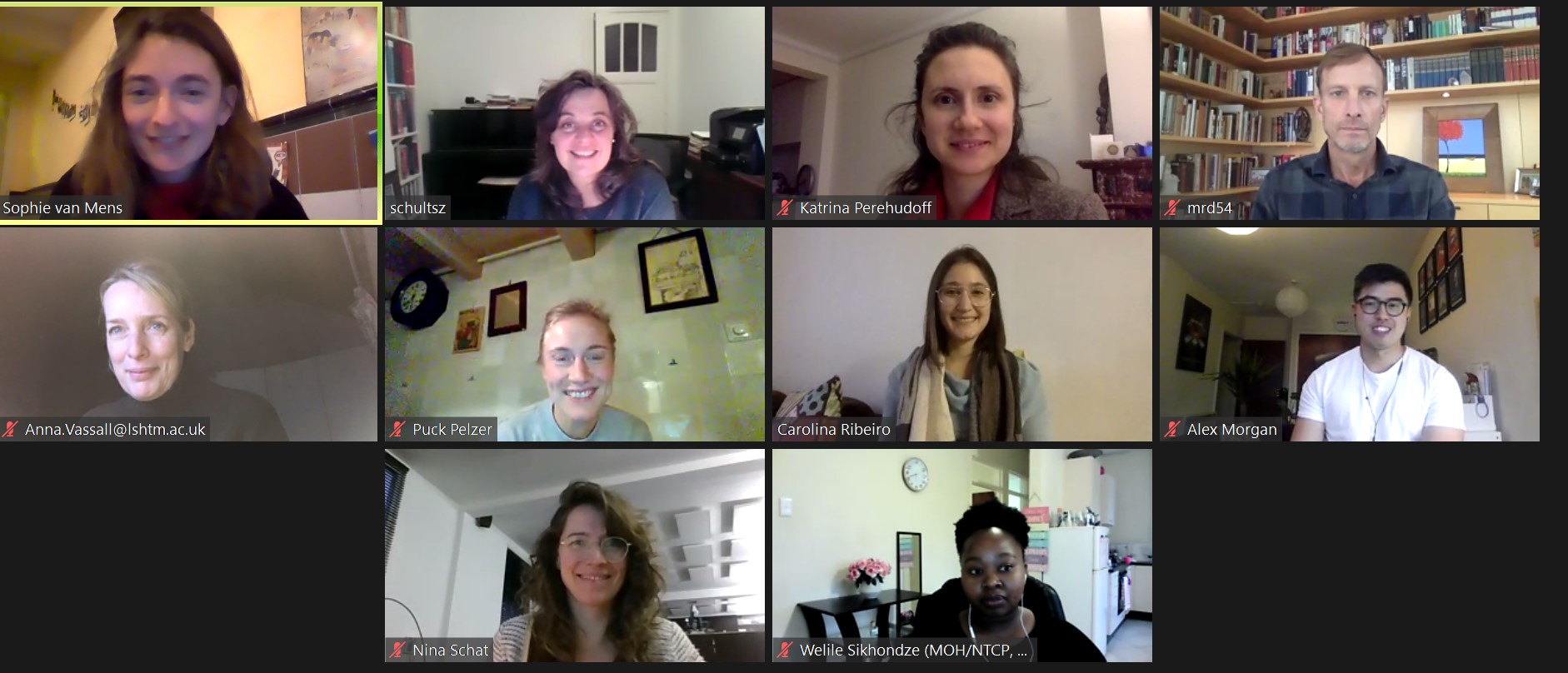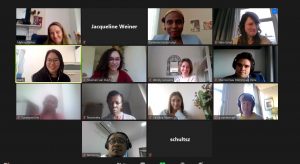
14 Dec Masterclass 2020: Societal Preparedness for Epidemics
Despite being held online, the Masterclass 2020 edition was a great success! The Joep Lange Chair & Fellows Program Masterclass, which took place on November 26 & 27 allowed 9 PhD students and postdoctoral fellows to present their research and receive feedback from their peers and the highly esteemed experts.
This year’s nine abstract winners had the unique opportunity to discuss their research on ‘societal preparedness for epidemics’ with peers and leading masterclass experts Prof. Mark Dybul, Prof. Anna Vassall, Prof. Catherine Kyobutungi and Prof. Melissa Parker. The late-stage PhD students and early postdoctoral researchers received real-time constructive feedback from the experts. After each abstract presentation, students and experts alike partook in, critical and interactive discussions where attendants could also pose questions to the presenter. The presented topics covered a wide array of disciplines including impacts of COVID on other epidemics like HIV or Tuberculosis, the role of poverty psychology on obesity, public-private health initiatives, evaluating vaccine development from a legal perspective, and how models of non-pharmaceutical interventions could be of use for outbreak control. The submitted abstracts are available to the public on the newly launched Joep Lange Chair Website: https://jlc.aighd.org
The purpose of the master class is to bring students from different disciplines together to network, learn from each other and draw inspiration from the experts. Students also receive guidance from the experts in their field and engage in discussions around challenges in global health that they are researching.
The multidisciplinarity in topics and Masters’ backgrounds made for striking discussions. Prof. Anna Vassal provided a health economic perspective whereas Prof. Mark Dybul looked at the issues from a decision maker’s mindset. Prof. Catherine Kyobutungi shared her expertise through an epidemiological lens and Prof. Melissa Parker provided some medical anthropology arguments. It highlighted once more the broad reach of global health where issues must be addressed from multiple angles and disciplines. The newly established connections in addition to the critical feedback is an important step in the professional development of these abstract winning researchers. The experts gave the students useful advice for their future and emphasized once more that “as a decision-maker in health, every decision will cost someone else’s life. The goal is to minimize that impact.”
We congratulate the Masterclass students for their outstanding presentations and thank you to the Masters for sharing their relevant insights and constructive feedback.

